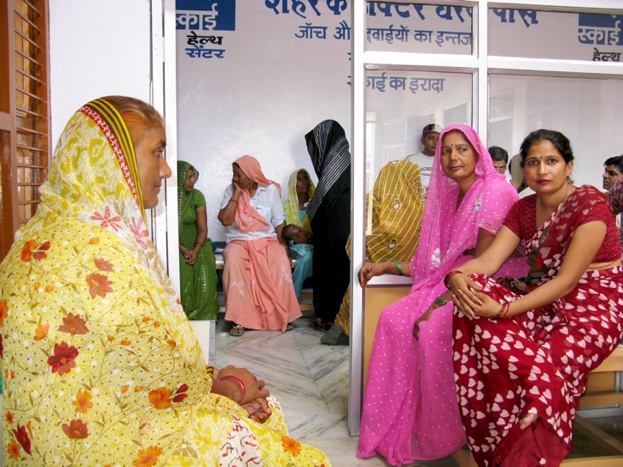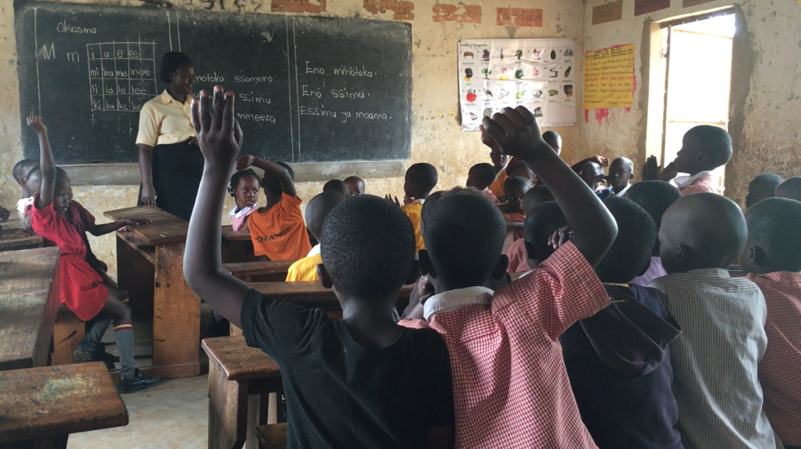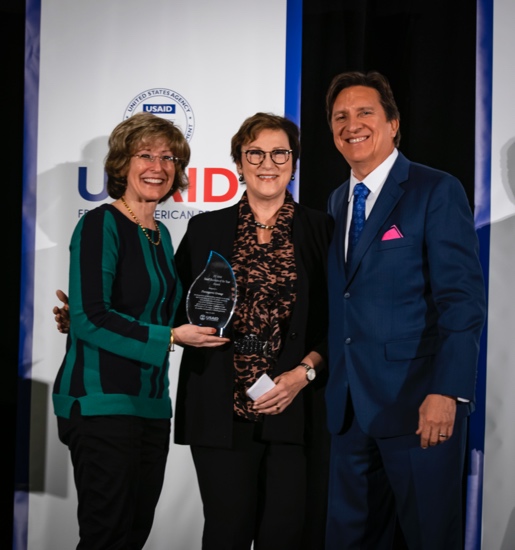Author: Betsy Bassan
We are proud to be a successful and growing woman-owned small business (WOSB) and United States Agency for International Development (USAID) implementing partner. In 2011, I responded to USAID’s call for partner diversification and founded Panagora. While not easy, we are living proof that it’s possible and that WOSBs can make a big impact as USAID partners.
Small business and big impact
How can a small business create a big impact? “Small businesses are uniquely poised to support the localization goals of USAID,” says Panagora’s founder and CEO, Betsy Bassan. “We are right sized to work with and give space to local partners, bringing local voices forward, ensuring local talent is front and center, and that local partners increasingly serve as implementing partners.”
Small businesses are nimble and adaptive, helping others to do the same with out-of-the-box thinking and approaches. Below are just a few examples of the impact of our work.
Advancing work of local partners in Bangladesh to improve health care: Under USAID Bangladesh’s Smiling Sun Franchise Program (SSFP), we worked closely with a local partner to provide organizational capacity strengthening (OCS) to 26 Bangladeshi health non-governmental organizations (NGOs), preparing them for direct awards. This helped our local partner become a go-to OCS provider and created enduring public-private partnerships while providing access to higher quality, affordable, and accessible health care to a catchment of 30 million people across Bangladesh.

Credit: Panagora Group – Women receive health care at a local NGO clinic in Bangladesh.
Managing and sharing data to ensure contraceptive security: For the USAID Global Health Supply Chain Program-Procurement and Supply Management (GHSC-PSM) project, our team proudly supported the implementation of a state-of-the-art platform that consolidates supply chain data for countries worldwide. This facilitates more robust data management and visibility, enabling countries to increase contraceptive security.

Credit: Panagora Group – School students in Uganda who were part of a USAID literacy project participate in a reading lesson.
Innovating Monitoring, Evaluation, and Learning (MEL) strategies to allow for real-time program improvements in Uganda: In our role leading Collaborating, Learning and Adapting (CLA) interventions for two performance and impact evaluation (P&IE) contracts supporting USAID Uganda’s flagship literacy program, Panagora demonstrated the power of user-focused continuous evaluation and real-time time performance feedback to catalyze real-time program improvements. We are proud to have won a USAID CLA award for this work.
It wasn’t easy
In 2011, when we started through a mentor-protegee agreement (MPA), we were ready to partner. Still, there was confusion around local partners and small businesses, and many small business opportunities dried up.
Despite this, Panagora secured pivotal subcontract work early on in global health and key cross-cutting areas often crucial to effective development. We used our capabilities developed as a subcontractor, which helped establish us as a proven USAID partner, to successfully bid on two IDIQs. Under the EVAL ME IDIQ, we began winning MEL platforms as a prime.

Credit: Panagora Group – Panagora founder Betsy Bassan accepts the award for Small Business of the Year for FY2018 presented by former USAID Deputy Administrator Bonnie Glick and former USAID OSDBU Director Mauricio Vera, 2019
As a result of our work under these MEL platforms and our dedication to inclusive development and solutions that stick, we were named USAID Small Business of the Year for FY2018 for “outstanding success in securing and performing on USAID prime contracts both domestically and overseas at our Missions.”
Today, in addition to being women-owned, we’re proud to also be employee-owned. We focus on creating an inclusive and equitable workplace and are at the forefront of localization and solutions that stick.
Lessons learned: go big, speak up, and plan for what’s next
We put ourselves out there, extensively networked to obtain subcontracts beyond the MPA, and then took chances to win IDIQs and implement prime work. We also went to bat for the small business community by throwing our energy behind the Small Business Association for International Companies (SBAIC); our founder, Betsy Bassan, served as chair for three pivotal years from 2013, formalizing the organization with registration, a board, and an articulated strategy and work plan.
This all paid off. We secured an Evaluation, Monitoring, and Learning Services (EVAL ME) IDIQ, which was a game changer for us, especially when champions in Office of Small & Disadvantaged Business Utilization (OSDBU) created a Mission Small Business (SB) goal, creating long-term prime opportunities. Panagora’s wins under this IDIQ in the Dominican Republic, Philippines, and South Africa led to our SB of the Year Award in 2018.
USAID’s best interest is to help small businesses and WOSBs succeed and grow. We are happy to see more opportunities for companies like ours to expand our portfolio beyond MEL to compete better in the middle market, such as the five-year USAID Localize Global Health Security (LGHS) activity, which we launched in 2023. Under LGHS, we strategically support local entities that can make the most difference in up to 15 African and Asian countries to address priority health security gaps at the sub-national level to prevent, detect, and respond to emerging infectious disease threats and achieve health security goals.
Our leadership of LGHS represents the culmination of the last 13 years of our work, allowing us to do what we do best at Panagora: work with local partners, advance sustainable development principles, and promote evidence-based solutions.
It also represents what’s possible for small business implementing partners: we are right sized to advance USAID’s localization goals and capable of taking on complex projects that make a lasting impact on the lives and livelihoods of people around the world.





